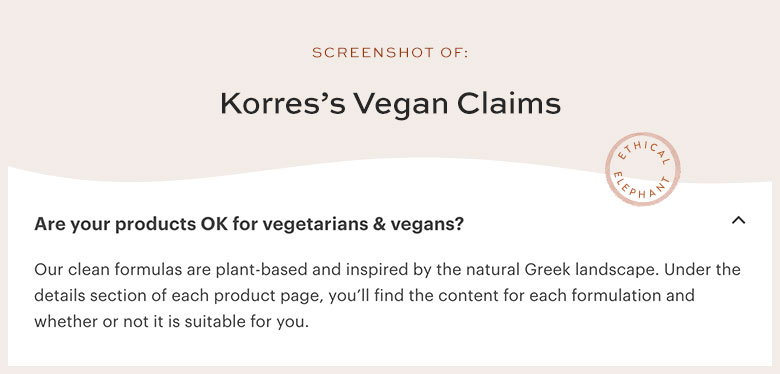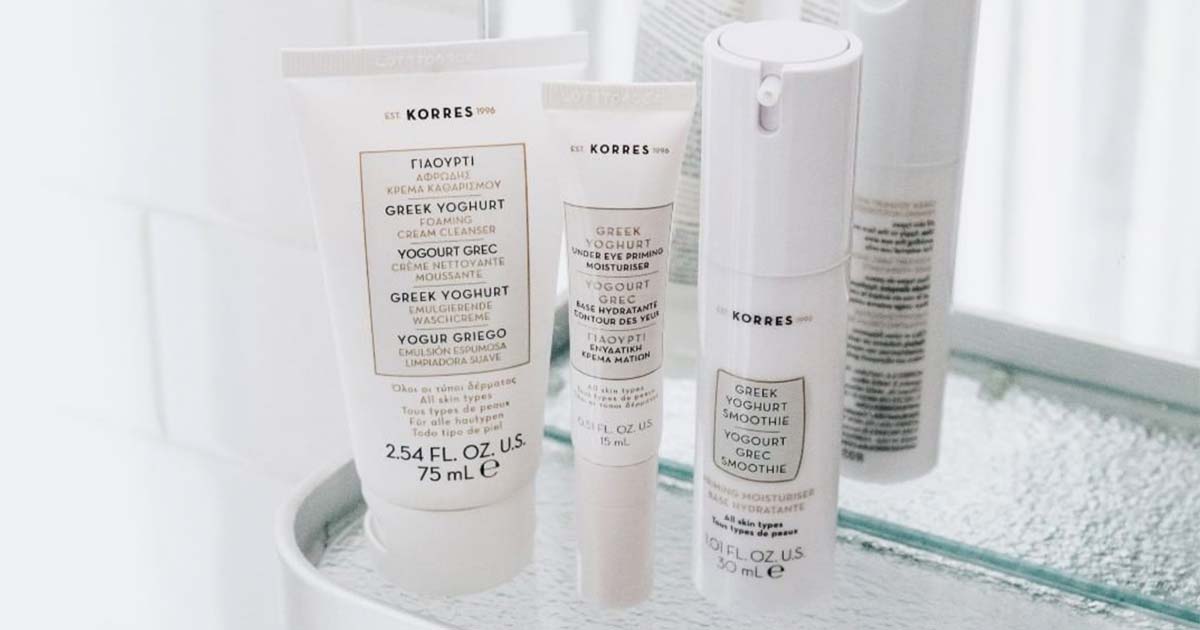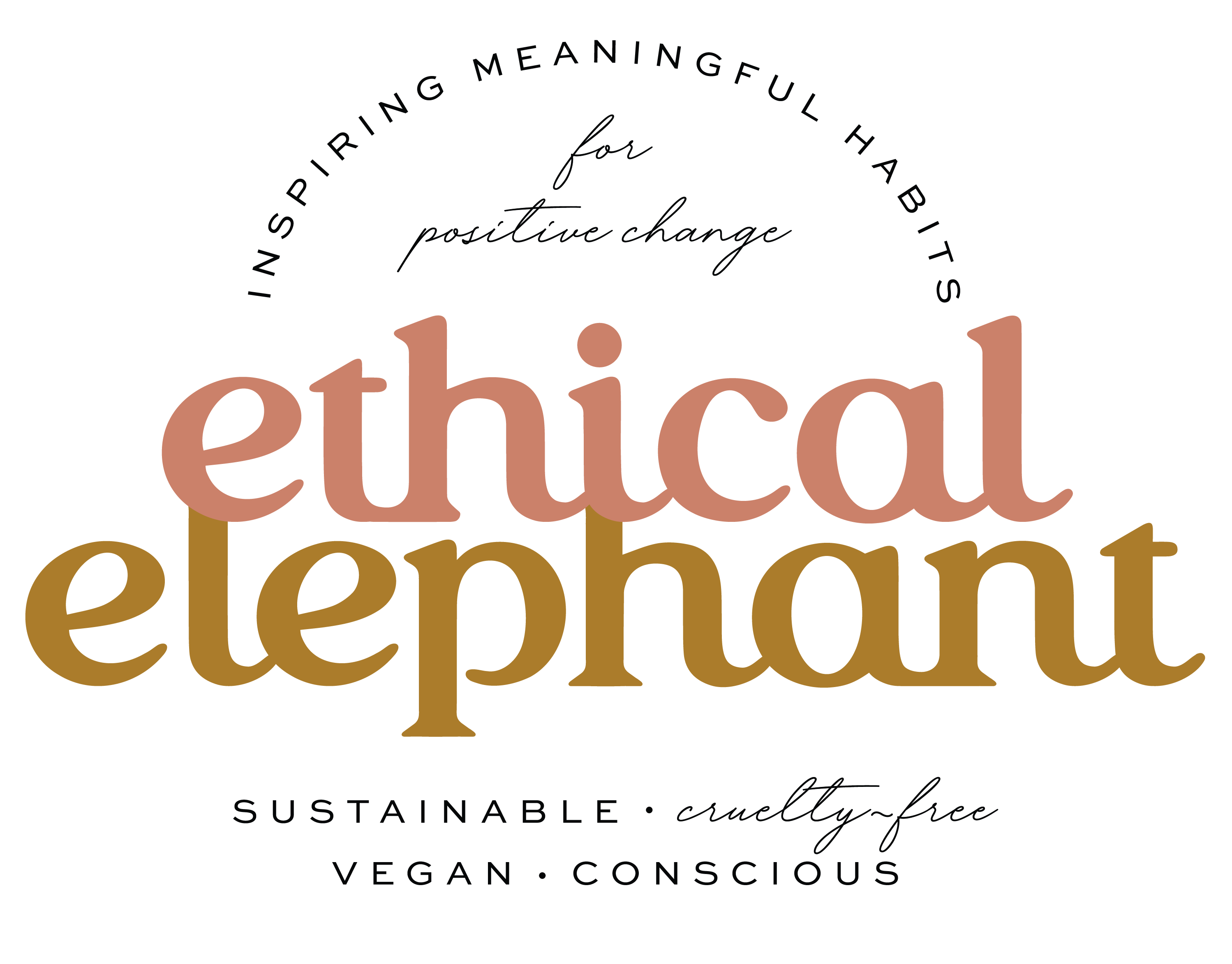This post may contain affiliate links that at no additional cost to you, I may earn a small commission.
You can find Korres cruelty-free products at Sephora and Amazon.
Korres is Cruelty-Free
Korres has confirmed they do not test their products or ingredients on animals or ask others to test on their behalf. Their suppliers also do not test on animals, nor do they allow their products to be tested on animals when required by law. And finally, their products are not sold in stores in mainland China or any other country that may require animal testing.
By our standards, we would consider Korres to be Cruelty-Free.
Below is a screenshot of what’s currently stated on Korres’s website about its animal testing policy:

What About China’s Animal Testing Laws?
Korres has confirmed they do not sell their products in retail stores in mainland China; therefore, they are not required to test on animals.
“We launched in China this year, but we are able to distribute in China without animal testing. We are selling online only and via Hong Kong (cross-border) so therefore the animal testing policies are not applicable. We still maintain our policy as a cruelty-free brand.“
As of May 1, 2021, some imported ordinary cosmetics can be exempt from animal testing under certain conditions. However, for the most part, animal testing is still legally required for most imported cosmetics in 2022.
Cruelty-Free Policies
Note that there is no legal definition for the label ‘Cruelty-Free.’ It can mean different things to different people. But Cruelty-Free is generally used to imply no animal testing. More specifically, the ingredients, formulation, or finished product are not tested on animals at any stage of product development.
At ethical elephant, we always assess a company’s cruelty-free policy using our Cruelty-Free Checklist. This ensures no animal testing was performed by the brand itself, its suppliers, and by any third parties.
Also, note that Cruelty-Free and Vegan don’t always mean the same thing.
Korres is Not 100% Vegan
‘Vegan’ in cosmetics can refer to an entire brand that is 100% Vegan or a specific product is vegan.
In the case of Korres, not all of their products are vegan. But they have some products that are suitable for vegans.
How to know which of Korres products are vegan?
All of Korres’s vegan products are clearly marked on their website.
The following is a screenshot of what’s currently stated on Korres’s website about its vegan claims:

Korres Vegan Product List
As of 2021, I will no longer be regularly updating this list of Korres’s vegan products as all of their vegan products are now clearly marked. Check their website for the most up-to-date and accurate information on which products are vegan or not.
Below is a list of Korres products that are suitable for vegans and do not contain any animal-derived ingredients or by-products.
If a product you’re interested in is not included in this list, please check “Korres – not vegan” list at the bottom of this post.
Skincare
- Black Pine Active Firming Sleeping Oil
- Black Pine Detoxifying Mineral Bar
- Black Pine Firming, Lifting & Antiwrinkle Day Cream
- Black Pine Firming, Lifting & Antiwrinkle Eye Cream
- Black Pine Firming, Lifting & Antiwrinkle Night Cream
- Black Pine Firming, Lifting & Antiwrinkle Serum
- Body Butters (except Yoghurt is not vegan)
- Castanea Arcadia Wrinkle Rewind Eye Cream
- Golden Krocus Ageless Saffron Elixir
- Pomegranate Cleansing & Make-up Removing Wipes
- Showergels (except Yoghurt is not vegan)
- Wild Rose 24-Hour Moisturising & Brightening Cream
- Wild Rose Brightening & Line Smoothing Serum Face & Eyes
- Wild Rose Brightening Targeted Tone Corrector
- Wild Rose Brightening Targeted Tone Corrector Neck & Décolleté
- Wild Rose Exfoliating Cleanser
- Wild Rose Instant Brightening Eye Treatment
- Wild Rose Smoothie Brightening Priming Moisturiser
- Wild Rose Vitamin C Active Brightening Oil
- Wild Rose Vitamin C Petal Peel 2-Step Brightening & Resurfacing System
Face Makeup
- Black Pine Concealer
- Black Pine Foundation
- Pomegranate Concealer
- Pomegranate Foundation
- Red Grape Compact Foundation
- Wild Rose CC Cream
- Wild Rose Concealer
- Wild Rose Foundation
Eyes Makeup
- Black Volcanic Minerals Kohl Eyeliner
- Black Volcanic Minerals Liquid Eyeliner
- Cedar Wood Eyebrow Pencil
- Sunflower & Evening Primrose Eyeshadow (except White 105, Silver 515, Golden-Bronze 275, Purple 745, Plum 775, Sky-Blue 845, Ivory 14, Golden 25, Lime 41, Bronze Brown 31, Light Pink 62, Pink 66, Metallic Grey 55, Golden Brown 28, Brun 36, Olive Green 47, Midnight Blue 88, Light Green 43, Cypress Green 49, Rose Pink 65 are not vegan)
- Volcanic Minerals Eyeliner (except Purple White 11 is not vegan)
- Volcanic Minerals Twist Eyeshadow (except 98 Black, 11 Ivory, 46 Olive Green, 68 Golden Pink, 29 Golden Bronze, 33 Grey Brown are not vegan)
Lips Makeup
- Cherry Lip Gloss
- Cotton Seed Oil Long Lasting Lipliner (except 5 Purple Red is not vegan)
- Lip Butter
- Morello Creamy Lipstick
- Raspberry Twist Lipstick (except Innocence and Elegance are not vegan)
Nails
- Myrrh & Oligoelements Nail Colour (except Denim Blue 83, Ultra Violent 29 are not vegan)
- Provitamin B5 & Oligoelements Base Coat
- Provitamin B5 & Oligoeleents Top Coat
Not Vegan – Korres
The following Korres products contain some animal-derived ingredients or by-products and are not considered suitable for vegans:
Face – Not Vegan
- Milk Proteins 3-in-1 Emulsion – not vegan
- Milk Proteins Cleansing Wipes – not vegan
- Milk Proteins Foaming Cream – not vegan
- Greek Yoghurt 3-in-1 Cleansing Emulsion – not vegan
- Greek Yoghurt Cleansing Wipes – not vegan
- Greek Yoghurt Foaming Cream – not vegan
- Greek Yoghurt Mask – not vegan
- Greek Yoghurt Cream – not vegan
- Greek Yoghurt Eye Cream – not vegan
- Greek Yoghurt Sleeping Facial – not vegan
- Greek Yoghurt After-Sun Cooling Gel – not vegan
- Yoghurt Fluid Veil SPF 30 – not vegan
- Yoghurt Smoothie – not vegan
- Wild Rose Mask Instant Brightening & Illuminating Mask – not vegan
- Milk Soap – not vegan
- Magnolia Night Cream – not vegan
- Castanea Night Cream – not vegan
- Castanea Night Cream – not vegan
- Castanea Foaming Cream – not vegan
- Olive Night Cream – not vegan
- Cranberry Lifting Mask – not vegan
- Watermelon Mask – not vegan
- Grapefruit Mask – not vegan
- Avocado Mask – not vegan
- Nectarine Face Mask – not vegan
Hair – Not Vegan
- Laurel and Echinacea Shampoo Against Dandruff and Dry Scalp – not vegan
- Sunflower & Mountain Tea Shampoo for Coloured Hair – not vegan
- Almond & Linseed Shampoo for Dry Hair – not vegan
- Shampoo Aloe & Dictamus for Normal Hair – not vegan
- Shampoo Urtica & Liquorice for Oily Hair – not vegan
- Shampoo Rice & Linden for Thin/Sensitive Hair – not vegan
- Rice Proteins & Linden Toning Shampoo for Fine and Fragile Hair – not vegan
- Lime Styling Gel Strong & Long-Lasting hold – not vegan
Body – Not Vegan
- Yoghurt Shower Gel – not vegan
- Yoghurt Body Milk – not vegan
- Yoghurt Body Butter – not vegan
- Yoghurt Hand Cream – not vegan
- Lily Bouquet Hand Cream – not vegan
- Guava Hand Cream – not vegan
- Bergamot Pear Hand Cream – not vegan
- Japanese Rose Hand Cream – not vegan
- Almond & Calendula Hand Cream – not vegan
- Almond & Shea Butter Hand Cream – not vegan
Sun Care – Not Vegan
- Yoghurt Face Cream SPF 50 – not vegan
- Yoghurt Face Cream SPF 30 – not vegan
- Yoghurt Face Cream SPF 50 Tinted – not vegan
- Yoghurt Face Cream SPF 30 Tinted – not vegan
- Yoghurt Body Emulsion SPF 50 – not vegan
- Yoghurt Body Emulsion SPF 30 – not vegan
- Yoghurt Body Emulsion SPF 20 – not vegan
- Yoghurt Cooling Gel – not vegan
- Red Grape SPF 30 Tinted – not vegan
Vegan Policies
Similar to ‘Cruelty-Free,’ there is no standard or legal definition for the label ‘Vegan.’ But it’s usually used in the context to describe something that doesn’t contain any animal-derived ingredients or animal by-products.
Some common animal products used in cosmetics include carmine, lanolin, snail mucus, beeswax, honey, pearl or silk-derived ingredients, animal-based glycerin, keratin, and squalene.
There are plant-based and synthetic alternatives to animal-derived ingredients. But it’s sometimes difficult to know with certainty whether a product is vegan just by reading the ingredient list.
So it’s best to ask the company and manufacturers to ensure the ingredients they’ve chosen to use were from non-animal sources.
Ethical Mica Mining Policy
Mica is a mineral that’s used in cosmetics to add a shimmery effect. But the mining of natural mica has been linked to child labor and human rights violations.
Unless the company discloses its mica mining policy, we have no way of knowing whether its mica is ethically sourced without child or forced labor.
So I asked Korres if their mica is ethically sourced without the use of child labor, but they never responded to any of my emails or messages.
I hope this article helped you to understand Korres’s cruelty-free and vegan status and by choosing cruelty-free together, we can help end animal testing for cosmetics once and for all!








7 thoughts on “Korres”
a lot of the shampoos of korres that have been listed as non vegan are in fact vegan.I dont know if they didnt used to be but they are
That’s great to hear!
The non-vegan list was provided by Korres.
Maybe they recently changed their formulas to be vegan. I’m unable to view the specific products’ ingredients since they’re not available in Canada but I just added a note in this post of possible formula changes! Thanks for letting me know, Eva! =)
They are NOT VEGAN at all. It says that the products are either vegan friendly or vegetarian friendly. But if you look into the ingredients it contains glycerin, glycol, glyceryl oleate, and some more. Those are 100 % from animals, and they clearly say there are no animal-by products in their products when on the ingredients list right next to it you have a mass of animal products in their products. Really ironic.
Glycerin and glycol comes from animal fat or boiled animal fat, unless it is said that it was extracted from plant oil. Which moreover is never the case when it comes to glycerin and glycol. Its sad that they are lyving. If the products I just mentioned and more that I have not had the time to check are not infact taken from animals and plant oils, it should have been said so. Since if the name purely have stated “glycerin” or “glycol” it is from animals.
Hi Michelle,
Hmm.. let me look into this some more! That would be so disappointing if that was the case. I’ll ask about the source of the glycerin that they use. Sadly, since there’s no legal definition for the term “vegan”… companies can label their products “vegan” to mean whatever they want it to mean! =(
I’ll update this post and let you know when I hear back from them.
Wrong! Nowadays, glycerine is mostly plant-extracted, due to cost and skin tollerance, and the law does not force a producer to label glycerine as plant- derived on label; it is a choice of the producer how to list it, therefore! Smartest and easiest is to write directly to the producer and ask, they do not take the legal risk of lying in an official statement, which applied as speaking as a professional on behalf of a company.;)
Hi Vicky!
Is the Pomegranate Balancing Cream-Gel Moisturiser Vegan? I couldn’t find it on the list.
I think Korea has decided to expand into Mainland China and thus does
NOW TEST ON ANIMALS.
Can you reach out to them to confirm?